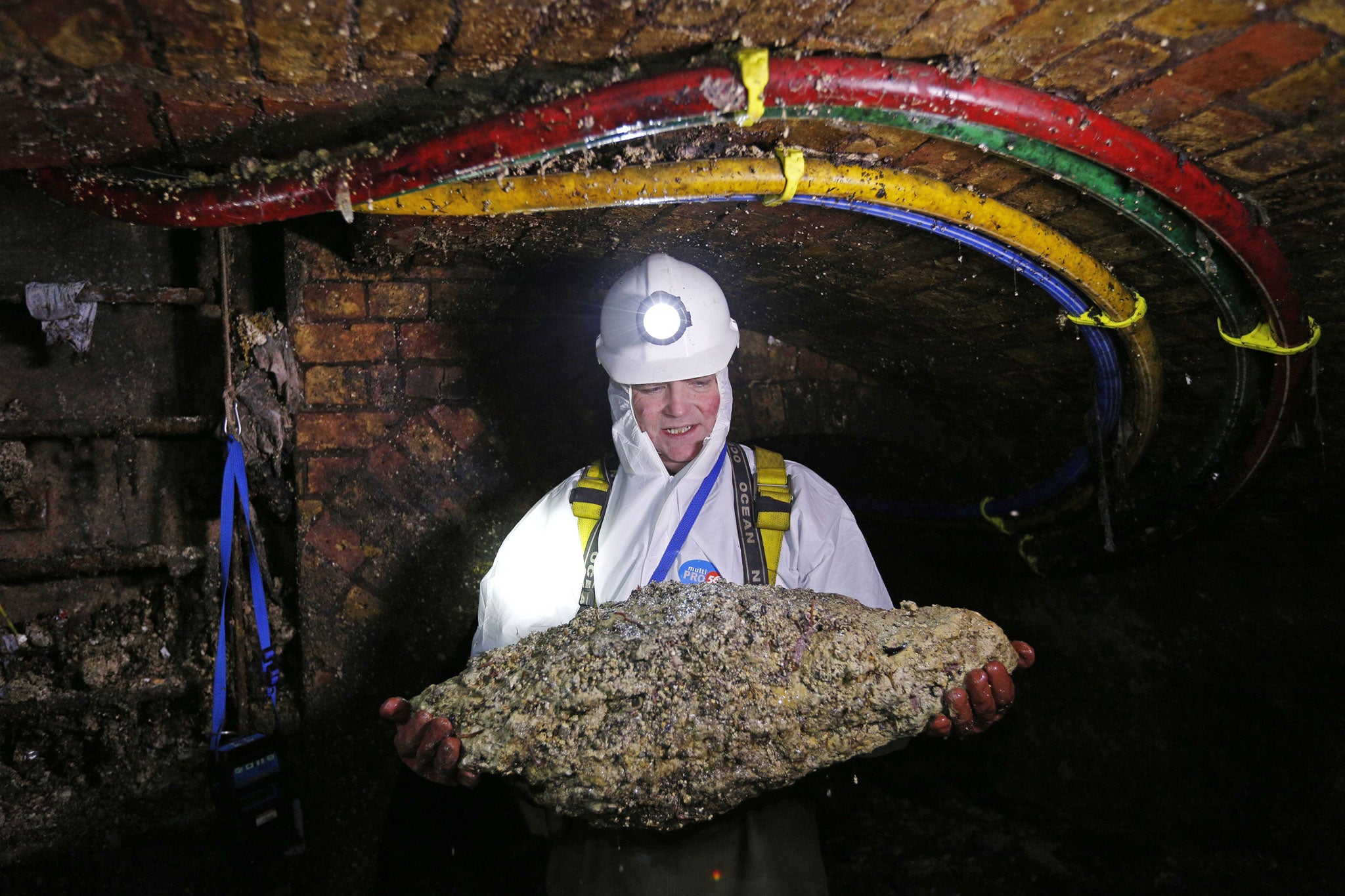10-tonne 'fatberg' removed from west London sewer after causing £400,000 worth of damage
The Chelsea fatberg weighed the equivalent of five Porsches

Your support helps us to tell the story
From reproductive rights to climate change to Big Tech, The Independent is on the ground when the story is developing. Whether it's investigating the financials of Elon Musk's pro-Trump PAC or producing our latest documentary, 'The A Word', which shines a light on the American women fighting for reproductive rights, we know how important it is to parse out the facts from the messaging.
At such a critical moment in US history, we need reporters on the ground. Your donation allows us to keep sending journalists to speak to both sides of the story.
The Independent is trusted by Americans across the entire political spectrum. And unlike many other quality news outlets, we choose not to lock Americans out of our reporting and analysis with paywalls. We believe quality journalism should be available to everyone, paid for by those who can afford it.
Your support makes all the difference.A 10-tonne ‘fatberg’ measuring 40-metres-long has been removed from a sewer under a street in Chelsea, west London.
The Chelsea fatberg was so heavy it broke the pipe in the 1940s sewer under Draycott Avenue and Walton Street in March, leaving Thames Water with a £400,000 repair bill.
The water company has replaced 22 metres of broken sewer with new piping and still has another 17 metres to repair.
The team has been forced to dig down by hand to avoid damaging the other pipes in the earth below the street, making the task even more time-consuming.
Thames Water said this particular fatberg weighed the equivalent of five Porsches.
Fatbergs usually consist of solidified fat, wet wipes, sanitary items and household waste and have become something of a plague on British sewers in recent years.
A spokesperson for the Thames Water told The Independent the congealed masses are caused by people flushing things down toilets and sinks which they shouldn't, such as cooking fats, oils and wet wipes.
“Wet wipes are particularly nasty when people flush them down the toilets, not just in Chelsea but all across region,” he said.
“When all these things come together in our sewers, wet wipes stick to fat and anything that is flushed down toilets that shouldn’t be, like nappies and sanitary items.
“Over time it builds up and builds up and then we are left with what we call a 'fatberg'.
“The original sewer in Chelsea has been so badly abused by fat being chucked down the plughole we have had to opt for the time consuming and disruptive option of replacing many metres of pipe. I’d urge people to consider what lurks beneath their feet – and when it comes to getting rid of fat – ‘bin it - don’t block it’.”
Thames Water said “blockage hotspots” in London include Ealing, Hounslow and Harrow, while it has dealt with 200,000 blockages across the UK.
Join our commenting forum
Join thought-provoking conversations, follow other Independent readers and see their replies
Comments